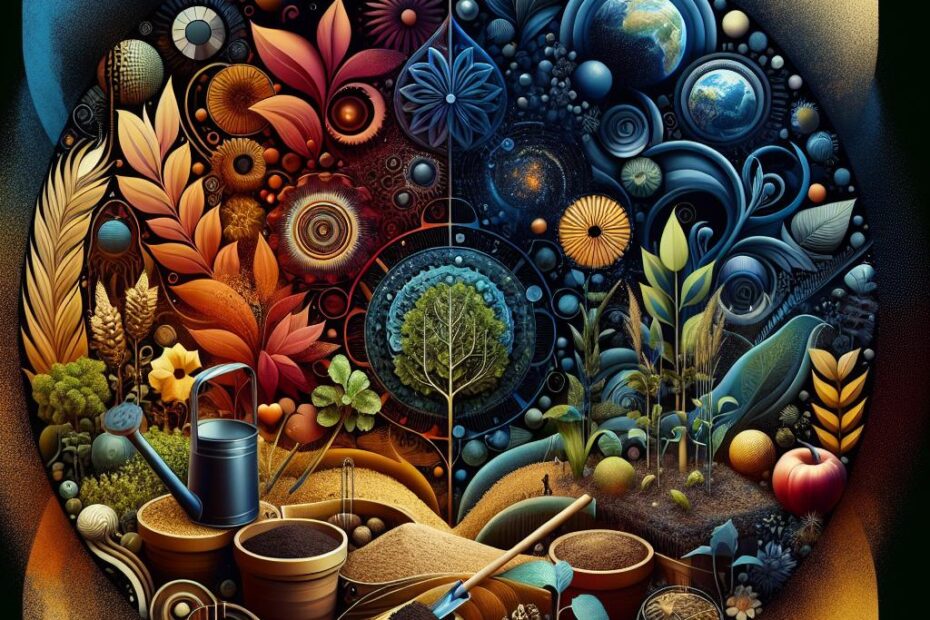What’s the Difference Between Garden Soil and Potting Mix?
When it comes to gardening, having the right soil is essential for the health and growth of your plants. Two common types of soil used in gardening are garden soil and potting mix. While they may seem similar, there are some key differences between the two that are important to understand in order to achieve successful plant growth. In this article, we will explore the distinctions between garden soil and potting mix to help you make informed decisions for your gardening needs.
- Introduction
Gardening enthusiasts often come across terms like garden soil and potting mix when shopping for soil products. Both are used as growing mediums for plants, but they serve different purposes and are tailored for specific gardening needs.
Garden soil is the native soil found in your garden, while potting mix is a manufactured blend of ingredients specifically designed for container gardening. Understanding the differences between the two can help you choose the right type of soil for your plants.
- What is Garden Soil?
Garden soil, also known as topsoil, is the natural soil found in your garden. It is a mixture of mineral particles, organic matter, water, air, and living organisms that create a fertile environment for plants to grow. Garden soil is typically used for planting directly in the ground and is a common choice for outdoor gardening.
Benefits of Garden Soil:
- Rich in nutrients and organic matter
- Supports beneficial soil organisms
- Provides good drainage and aeration
Drawbacks of Garden Soil:
- Heavy and dense
- Susceptible to compaction
- Can contain weed seeds and pests
- What is Potting Mix?
Potting mix, also known as potting soil, is a manufactured soil blend specifically formulated for container gardening. It is designed to provide optimal drainage, aeration, and moisture retention for plants grown in pots, containers, or raised beds. Potting mix is made from a mixture of ingredients such as peat moss, perlite, vermiculite, coconut coir, and organic matter.
Benefits of Potting Mix:
- Lightweight and well-draining
- Sterile and free of weed seeds
- Provides good aeration for roots
Drawbacks of Potting Mix:
- Requires regular fertilization
- May dry out quickly
- More expensive than garden soil
- Differences Between Garden Soil and Potting Mix
- Composition: Garden soil is a natural soil blend found in your garden, while potting mix is a manufactured soil blend specifically designed for container gardening.
- Purpose: Garden soil is used for planting directly in the ground, while potting mix is used for container gardening.
- Texture: Garden soil is heavier and denser, while potting mix is lighter and well-draining.
- Nutrients: Garden soil is rich in nutrients and organic matter, while potting mix may require regular fertilization.
- Weed Seeds: Garden soil may contain weed seeds and pests, while potting mix is sterile and free of contaminants.
- Practical Tips for Choosing the Right Soil
When deciding between garden soil and potting mix, consider the following factors:
- Container Size: If you are planting in containers or raised beds, use potting mix for better drainage and aeration.
- Plant Needs: Some plants, such as succulents and cacti, prefer well-draining soil, so opt for potting mix in this case.
- Budget: Potting mix can be more expensive than garden soil, so consider your budget when making a choice.
- Conclusion
In conclusion, the difference between garden soil and potting mix lies in their composition, purpose, and characteristics. Garden soil is ideal for outdoor planting in the ground, while potting mix is best suited for container gardening. Understanding the distinctions between the two can help you choose the right soil for your gardening needs and ensure the healthy growth of your plants. Whether you are a beginner gardener or an experienced enthusiast, selecting the appropriate soil is crucial for successful plant growth and development.
